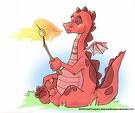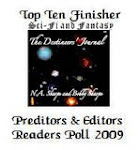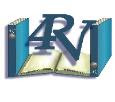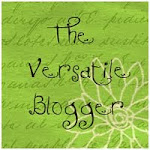As I mentioned last week, Wednesday’s theme over the next several weeks is going to focus on the art of worldbuilding in your fantasy or science fiction story. A good source of questions to ask yourself when deciding elements within your created world can be found in Patricia Wrede’s Fantasy Worldbuilding Questions . This is an excellent guide to help you determine what factors you will need to consider.
Worldbuilding is a lot like character development in the sense that the more detailed you are in its development, the more you will learn about its history. For example, in character development many writers will build an entire back story for their characters or have a conversation with them to get to know them better. Often this process will bring out details we were originally unaware of that can explain some of the behaviors and personalities of our characters. With worldbuilding, the more detailed you are with the creation, the history behind this realm emerges. The writer then gets an understanding about how this will affect the emerging cultures of the beings that inhabit this realm. Learning the “whys” in your world will lead to a depth that you never expected and open additional potential story threads that will add dimension and credibility to the story.
Worldbuilding goes much further than drawing a map, naming the geographic locales (lakes, forests, towns and determining a geographic locale – it is building the personality of your world, deciding how everything is interconnected and how different elements will interface with each other. Knowing things like the geography of your world will help you determine things like the population of your world. Often the writer already has the main characters for a particular story in mind, but it may be prudent to wait until a little later in the process before creating your secondary characters. This way you can create beings that fit into not only the story but the world being created for them. You can then make certain you have laid out an appropriate route for your character to take on his quest making sure your characters will run into realistic obstacles to heighten the tension through the storyline.
One area that helps not only in defining your world, but in character development, is cultural differences. This is an area that can bring conflict into a story that happens in any world. Living in a world of diverse cultures that are appropriate to your plot can open horizons for rabble-rousers and malcontents inciting tension throughout your story. And in fiction, tension is a good thing.
What about other genres? What processes do you go through in determining your setting in the real world? Just a thought...
Like this post? Tweet it. Go ahead, you know you want to!

Worldbuilding is a lot like character development in the sense that the more detailed you are in its development, the more you will learn about its history. For example, in character development many writers will build an entire back story for their characters or have a conversation with them to get to know them better. Often this process will bring out details we were originally unaware of that can explain some of the behaviors and personalities of our characters. With worldbuilding, the more detailed you are with the creation, the history behind this realm emerges. The writer then gets an understanding about how this will affect the emerging cultures of the beings that inhabit this realm. Learning the “whys” in your world will lead to a depth that you never expected and open additional potential story threads that will add dimension and credibility to the story.

Worldbuilding goes much further than drawing a map, naming the geographic locales (lakes, forests, towns and determining a geographic locale – it is building the personality of your world, deciding how everything is interconnected and how different elements will interface with each other. Knowing things like the geography of your world will help you determine things like the population of your world. Often the writer already has the main characters for a particular story in mind, but it may be prudent to wait until a little later in the process before creating your secondary characters. This way you can create beings that fit into not only the story but the world being created for them. You can then make certain you have laid out an appropriate route for your character to take on his quest making sure your characters will run into realistic obstacles to heighten the tension through the storyline.
One area that helps not only in defining your world, but in character development, is cultural differences. This is an area that can bring conflict into a story that happens in any world. Living in a world of diverse cultures that are appropriate to your plot can open horizons for rabble-rousers and malcontents inciting tension throughout your story. And in fiction, tension is a good thing.
What about other genres? What processes do you go through in determining your setting in the real world? Just a thought...
Like this post? Tweet it. Go ahead, you know you want to!




























15 comments:
Glad you are posting about world building. I'm working on a mg urban fantasy, and need to do some "minor" world building. I'm looking forward to future articles.
Hi Katie! Great to see you over here. Can't wait to read your mg fantasy :D
Thanks so much for stopping by!
Nancy, from Just a Thought…
Hi, Nancy,
This is very interesting and informative. In the Harry Potter series, for example, my only “real world,” (Ha.) experience with the not real…so to speak, I was always amazed about how she was able to create such a complex and related, world. Do you think this, or something similar, is a process she used?
For me, and this is kind of a surprise, ‘cause I’m a structure kinda guy, I don’t use anything, other than maybe a photo of the place or a person to help with detail. But, it seems to work for me…sorta.
Best Regards, Galen.
GalenKindley.com
Hi Galen!
That is an excellent example of plotting out the worldbuilding. Everything throughout the series is very concise and inter-related. There is great depth and backstory to both the characters and the setting. A great deal of the back story was revealed about the setting and ancient magic in the later books.
The culture differences played a significant role in the series as well - the purebloods felt quite supreme to the those of only "half blood" or the "mudbloods" and Muggles. Even among the fantasy creatures, house elves were quite low on the pyramid and all these inter-relationships played heavily into the storyline.
I am also structured in most of my daily activities, but in writing short stories I was not at all. I surprised myself how structured I was in ferreting out details of setting and character when I began writing the novel. I also was quite surprised at some of the things I learned and how new story threads sprung from these details. Its exciting to see the story springing to life in my head faster than I can get the details to paper, lol.
Great comment!!
Nancy, from Just a Thought…
It's so much fun to do the cultural aspects of world building!
Hi Danyelle!
I agree, there is a lot of fun to be had when you are planning your book and begin unearthing new possible story threads to weave through your plot. Cultural aspects are difinitely fun!
Thanks for stopping!
Nancy, from Just a Thought…
Very interesting topic!
In the cozy mystery world, the setting is usually a small town or village (the better to limit the number of potential suspects...and to create tension in the town.)
Elizabeth
Mystery Writing is Murder
Hi Elizabeth!
So do you worldbuild on a smaller scale...staying in the real world but perhaps a fictitious town and the cultural differences of perhaps those families who have lived there forever as opposed to the city-slicker newcomer? I'm curious how authors in other genres deal with these questions.
Nancy, from Just a Thought…
Great stuff, Nancy. I would love to build a fantasy world someday. Maybe. For now, my story settings are places I'm familiar with, mostly Texas. Or else places I've visited that sparked a story idea, like my ghost story and my Civil War story.
This is interesting and I'm filing it away for future reference.
Bev
http://beverlystowemcclure.blogspot.com
Hi Bev!
I think you'd build a wonderful fantasy world - your writing style would fit perfectly! I think you should give it a shot...betcha like it!
Nancy, from Just a Thought…
I've been building my mysteries in real locations, sometimes giving them a fictitious name, sometimes not. It helps me ground the story when I have a sense of place before I work on the plot and characters.
Patricia
Hi Patricia! That's an interesting point. Sometimes an air of familiarity can carry through a story in the personality of the setting as well.
Thanks for stopping by!
Nancy, from Just a Thought…
I love what you wrote: "...it is building the personality of your world..." Excellent advice!
Jina
The Berlin Sex Diary of Lady Eve Marlowe
Hi Jina!
Welcome! I think worldbuilding is a very similar procedure to developing characters. There are a lot of details to discover and see exactly how everything will interconnect. To me setting definitely has as much of an element of personality as the characters. It adds depth to the story and may open a few doors or windows to additional story threads or change the direction you thought a story thread would take.
Thanks so much for stopping by!
Nancy, from Just a Thought…
Hi Karen,
Even in the real world I think the presentation of a setting has an impact on the story. Your writing style is very descriptive so I am sure it shines through!
Nancy, from Just a Thought…
Post a Comment